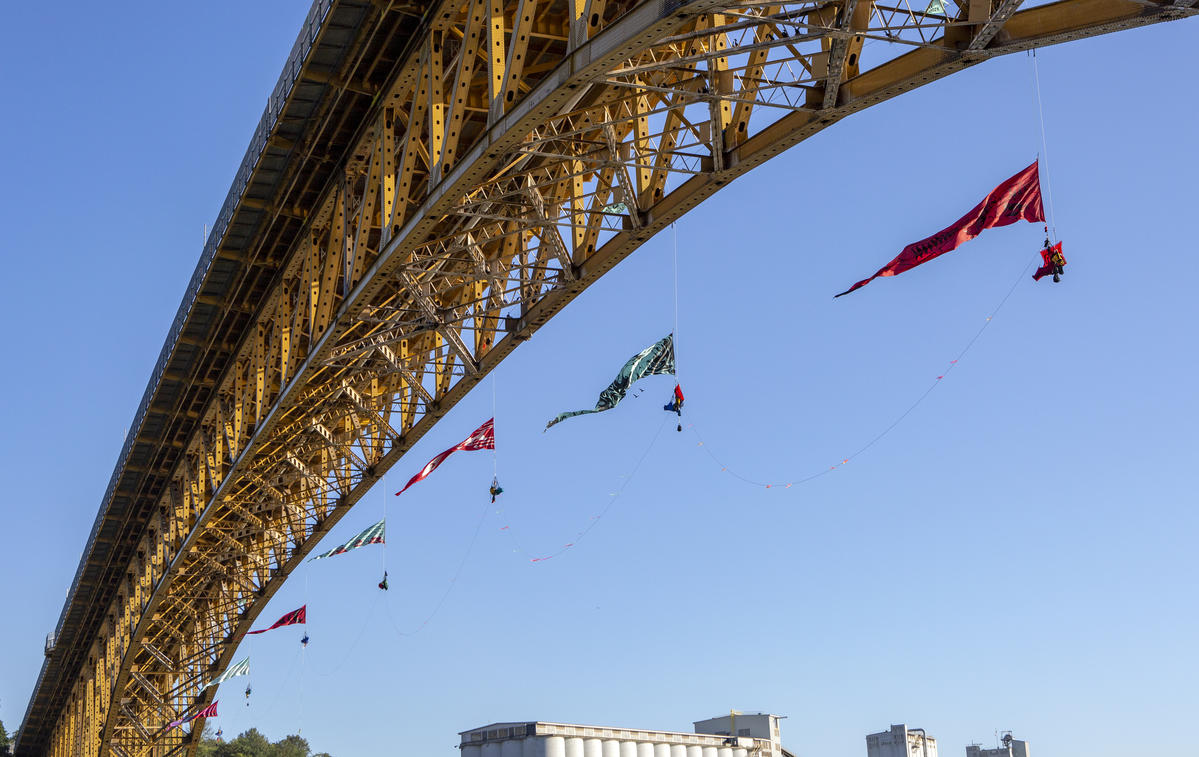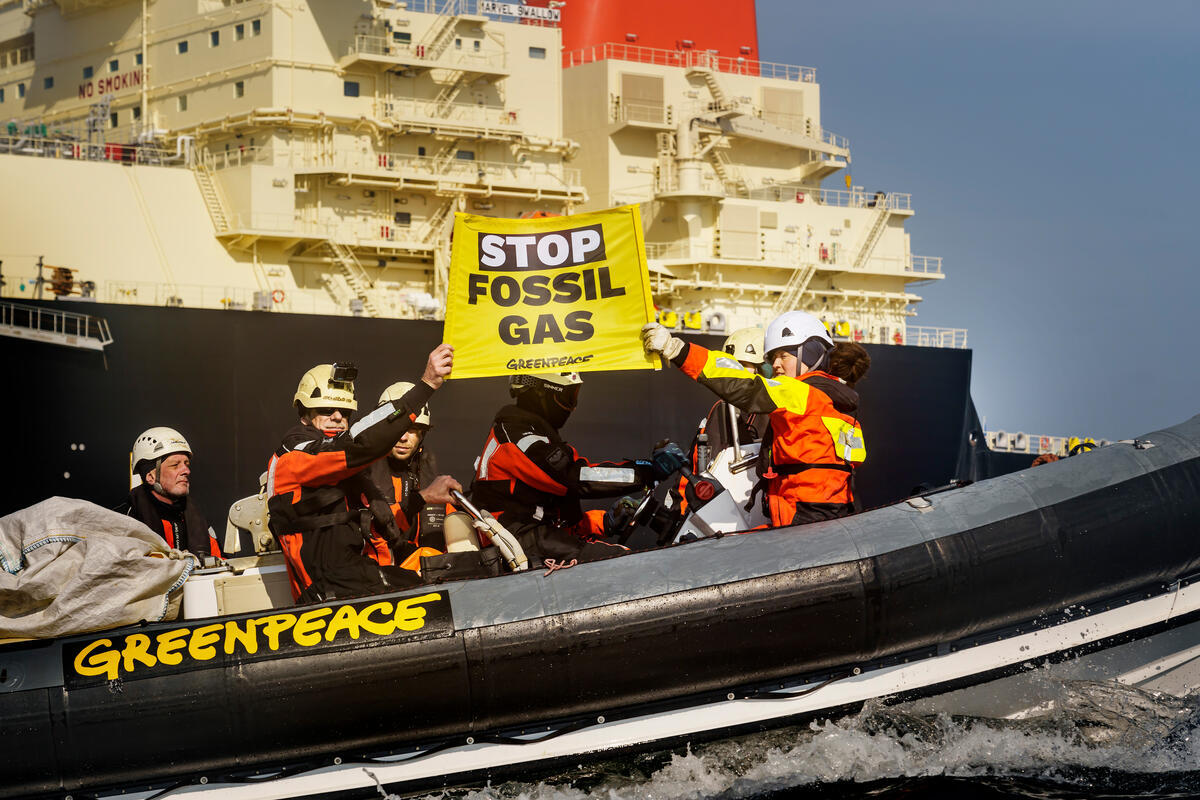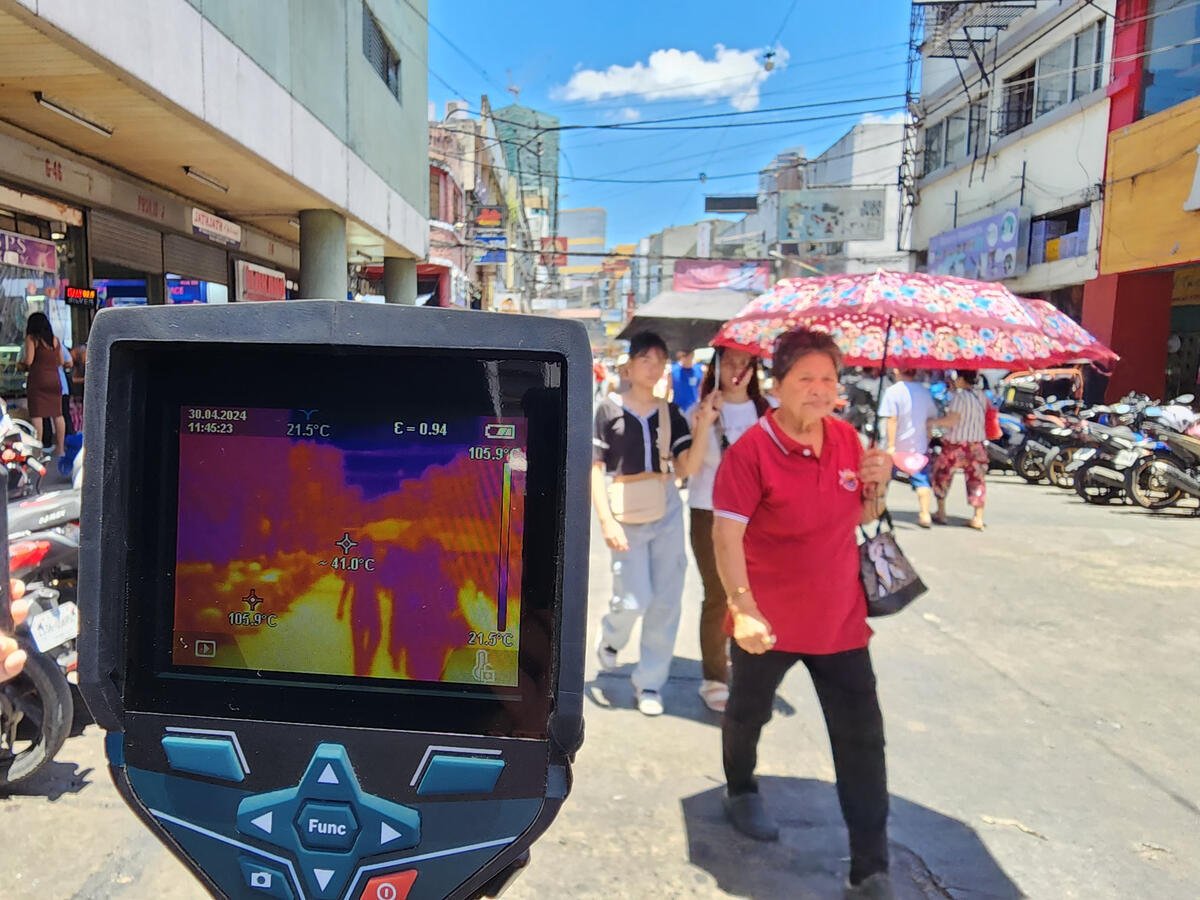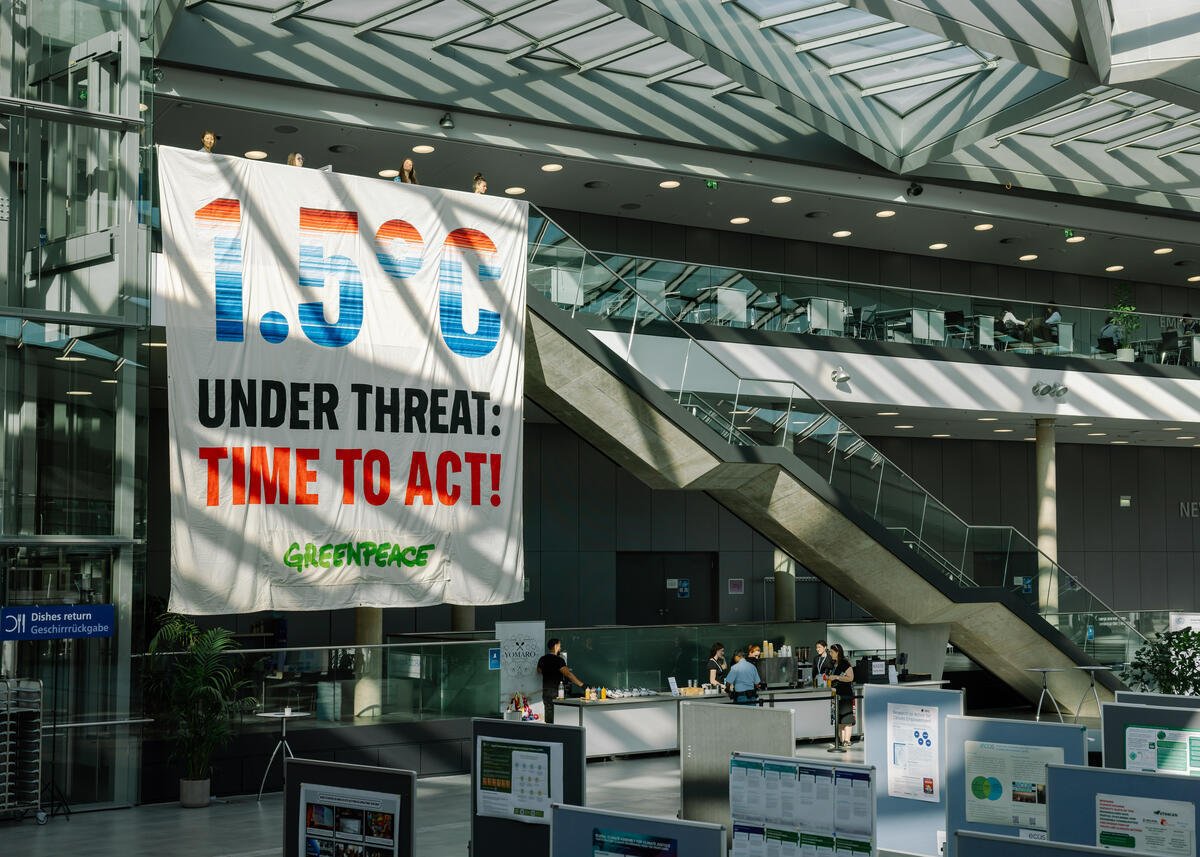
Activists form an aerial bridge blockade in the path of a Trans Mountain tar sands oil tanker traffic. The tar sands oil tanker was docked at the Kinder Morgan’s Westridge Marine Terminal. The blockade is part of wave of growing resistance against the controversial Trans Mountain Expansion pipeline and tanker project (TMX). The activists suspended from the Iron Workers Memorial Bridge in Vancouver, British Columbia.
Unceded Coast Salish Territories/Vancouver, Canada — The Greenpeace Canada aerial bridge blockade in the path of the Trans Mountain tar sands oil tanker, Serene Sea, has ended. The tanker was loaded with oil from the Alberta tar sands and waited at anchor while the blockade prevented it from leaving.
After spending more than 35 hours on the Ironworkers Memorial Bridge in Vancouver, the climbers who rappelled from the bridge and supporting blockade members were peacefully removed from their positions. The Royal Canadian Mounted Police (RCMP) are taking the activists to the North Vancouver RCMP detachment. [1]
The two-day blockade was made up of twelve people hailing from the Indigenous Coast Salish community, B.C., Alberta, Quebec, Ontario, the U.S.A (Washington state), Mexico and the U.K.
“I will remain the fierce opposition. It is in my blood to protect the water. Our Indigenous rights are being completely ignored, the safety of our water is being ignored, and most of all my son’s future is at stake. I will do whatever it takes to protect the water and my family and your family,” said Will George, an Indigenous Coast Salish member joined the blockade as a climber. He is also the spokesperson and leader of Kwekwecnewtxw.
“No one should need to spend almost two days suspended from a bridge trying to protect something as essential as water but that’s exactly what the Prime Minister Trudeau has driven us to do. The Prime Minister still has a chance to make the right decision and stop this pipeline. Whether it’s by his pen, in the courts, or the global resistance the pipeline won’t be built – this movement of people isn’t going anywhere,” said Mike Hudema, a Greenpeace Canada spokesperson and climber.
Opposition to Canadian Prime Minister Justin Trudeau’s plans to buy the existing and proposed Trans Mountain pipelines has been intense, given the C$4.5 billion cost to taxpayers. The blockade followed months of escalating protest against TMX and other pipelines by Indigenous communities in B.C., down the Washington coast, and across Canada.[1] In recent months, more than 200 people have been arrested in B.C., while protests abroad have happened in the U.S., U.K., Switzerland, and Spain.
To support the resistance against TMX and other controversial pipelines, more than 280,000 Greenpeace supporters around the world have called on 12 major banks (“the Dirty Dozen”) to refrain from financing these pipelines. A number of banks have made commitments along these lines, including HSBC and BNP Paribas (Europe’s two largest banks).
If built, TMX would increase tar sands tanker traffic in Vancouver seven-fold to about 400 tankers each year. This could push the remaining 75 endangered Southern resident orcas to extinction and threaten coastal communities, as well as the coastal marine ecosystem, with devastating oil spills.
ENDS
Photos, video and b-roll can be accessed here
Notes:
[1] Less than half of the 120 First Nations along the route signed agreements with Kinder Morgan (43 First Nations). Indigenous Coast Salish unceded territories include the B.C. coast at the end of the proposed pipeline, as well as the waters of the Salish Sea, through which tankers loaded with oil from TMX would pass. As TMX has not received consent or agreement from more than half of potentially impacted Indigenous communities, the project is in violation of the UN Declaration on the Rights of Indigenous Peoples. The Trudeau government officially supports the declaration.
Contacts:
Jesse Firempong, Communications Officer, 778-996-6549, [email protected]
Loujain Kurdi, Communications Officer: 514-577-6657, [email protected].
Greenpeace International Press Desk: +31 (0) 20 718 2470 (available 24 hours), [email protected]



